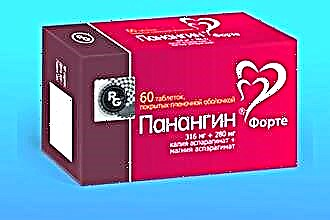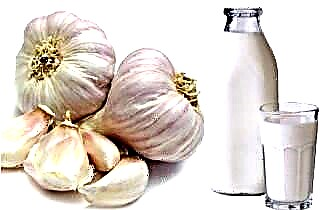Causes
 Often, vasomotor rhinitis of pregnant women appears when hormonal changes occurring in a woman's body in the second half of pregnancy. During this period, the level of female steroid hormones, which the placenta produces in excess, increases significantly.
Often, vasomotor rhinitis of pregnant women appears when hormonal changes occurring in a woman's body in the second half of pregnancy. During this period, the level of female steroid hormones, which the placenta produces in excess, increases significantly.
Against the background of a high level of hormones, swelling of the nasal mucosa and turbinates occurs, as well as an increase in mucus production.
You can also identify a number of reasons that can provoke the development of rhinitis:
- various viral infections of the nasopharynx;
- exacerbation of some chronic diseases, such as sinusitis, laryngitis;
- pathologies associated with improper positioning of the nasal septum;
- adenoids, polyps;
- allergens.
The causes of this form of rhinitis are most often not associated with infectious diseases or allergic manifestations. Such a runny nose can occur due to:
- stay in a room with very dusty air;
- inhalation of strong odors, for example, paints and varnishes;
- smoking and alcohol abuse;
- nervous strain, the use of certain medications;
- eating too cold, hot, peppery food.
Symptoms
The main symptom that characterizes rhinitis in pregnant women and other patients is nasal congestion. If the nose does not fulfill its main functions and the person constantly breathes with the mouth, then the likelihood of infections entering the body increases significantly, and local immunity decreases.
Rhinitis symptoms also include:
- runny nose, a large amount of secreted liquid, often colorless secretion;
- sneezing, coughing;
- tickling sensation in the nose;
- general weakness, rapid fatigability, headache;
- snoring and holding your breath during a night's sleep;
- sniffing, especially when walking fast, climbing stairs.
Important! Chronic rhinitis and nasal congestion in pregnant women are not accompanied by hyperthermia and severe sore throat. If a runny nose is accompanied by these symptoms, then another disease is most likely.
Treatment
Treatment of any disease while carrying a child should be carried out exclusively under the supervision of a physician. Indeed, often those drugs that a woman used to treat a cold before pregnancy cannot be used when carrying a child, as they can be dangerous to the fetus.
- If rhinitis is caused by a serious viral infection, then in this case antiviral drugs (Anaferon and Oscillococcinum) are used, drugs from the interferon group (Viferon) are considered the safest for the fetus.
- If a pregnant woman has developed a bacterial infection, most often this occurs when a runny nose is complicated by sinusitis, then in this situation, therapy with antibacterial drugs (Amoxicillin, Cefazolin, Azithromycin) may be required.
- If the expected benefit to the mother is higher than the potential risks to the fetus, the attending physician may prescribe Bioparox spray.
- In case of an allergic rhinitis, the allergen must be eliminated first. Regular wet cleaning and airing the room also help. If there is a seasonal allergic rhinitis, and the cause of the allergy cannot be eliminated, modern antiallergic drugs are prescribed (Loratadin, Zyrtec).
It is known that during gestation, an increased amount of cortisol is produced, a substance that has antiallergic activity. Therefore, in pregnant women, the likelihood of developing allergies is significantly reduced.
However, most often, chronic rhinitis in pregnant women, as noted above, occurs against the background of hormonal changes in the body and is not associated with the action of pathogenic microorganisms.
 Therefore, often the treatment of a common cold in this case is based on simple procedures aimed at moisturizing the mucous membrane of the nasal passages, relieving irritation.
Therefore, often the treatment of a common cold in this case is based on simple procedures aimed at moisturizing the mucous membrane of the nasal passages, relieving irritation.
- Rinsing the nasal cavity with saline solutions (Aquamaris, Physiomer, Salin, Aqualor). Such drugs have practically no contraindications, they moisturize the nasopharyngeal mucosa well, cleanse the nasal passages of dust, thin mucus, relieve inflammation, and reduce swelling. Saline solution for irrigation of the nasal passages can be prepared at home, at the rate of half a teaspoon of table or edible sea salt for half a liter of boiled water. You can also use regular saline solution purchased from a pharmacy as a rinsing solution.
- Moist and cool air can help reduce the symptoms of rhinitis. Therefore, it is important to maintain an optimal humidity level (at least 50%) and an air temperature of about 20-22 degrees.
- Inhalation using alkaline mineral water or saline with a nebulizer also moisturizes the mucous membrane well, reduces swelling, irritation, and liquefies mucus.
- In the absence of individual intolerance, you can use inhalations with essential oils (eucalyptus, tea tree, fir), balm "Zvezdochka", drops Pinosol, Eucasept, Euphorbium compositum.
- If the nose is completely stuffy, then to restore breathing, the only corticosteroid drugs based on fluticasone propionate (Fliksonase, Fluticasone) are the only ones allowed during childbearing.
- To normalize vascular permeability, the use of the drug Wobenzym is indicated.
Also, during pregnancy, you should follow a well-balanced diet, eat fortified food (fresh fruits, vegetables, dried fruits), a sufficient amount of liquid (if there are no contraindications from the doctor). A high pillow will help to reduce the swelling of the nose during sleep.
Folk ways
Alternative methods of treating rhinitis during pregnancy are also highly effective and help eliminate puffiness, as well as remove unpleasant symptoms of a cold, being completely safe for the fetus.
- Using aloe juice. Plant sap is instilled into the nose in a couple of drops, previously diluted with saline in a 1: 1 ratio. Such a remedy well removes nasal congestion, moisturizes the mucous membrane, and makes breathing easier. The use of aloe inside during pregnancy is contraindicated.
- Steam inhalation for rhinitis during pregnancy also has a positive effect. To do this, use decoctions of chamomile, oak bark, sage, propolis and calendula infusions, adding two teaspoons for every half liter of water.
Important! Inhalation of too hot steam and hot foot baths are prohibited during pregnancy.
- Kalanchoe juice is a good remedy for rhinitis. However, while carrying a child, it should be diluted with saline.
- Nasal instillation of beetroot juice, carrot juice, and mixtures thereof helps to reduce the severity of symptoms of rhinitis in pregnant women.
- Sinus massage. The procedure should be carried out in light circular motions until improvement is felt. Most often, ten minutes of this massage is enough to restore nasal breathing.
Contraindications
In order to cure vasomotor rhinitis, eliminate the main signs of the disease and at the same time not harm the unborn child, you need to know about the methods of treatment and drugs that are contraindicated during pregnancy. It is forbidden:
- use immunostimulants that can provoke a miscarriage in the first trimester of pregnancy;
- use funds belonging to the group of adaptogens, substances that increase heart rate and blood pressure;
- use beekeeping products for the treatment and prevention of diseases, especially in the second half of pregnancy;
- take vitamin complexes on your own without a doctor's prescription;
- use vasoconstrictor drops and sprays, since the substances that make up such drugs are capable of penetrating into the general bloodstream, affecting the vessels of the placenta, impairing blood supply, provoking fetal hypoxia;
- self-medicate.



